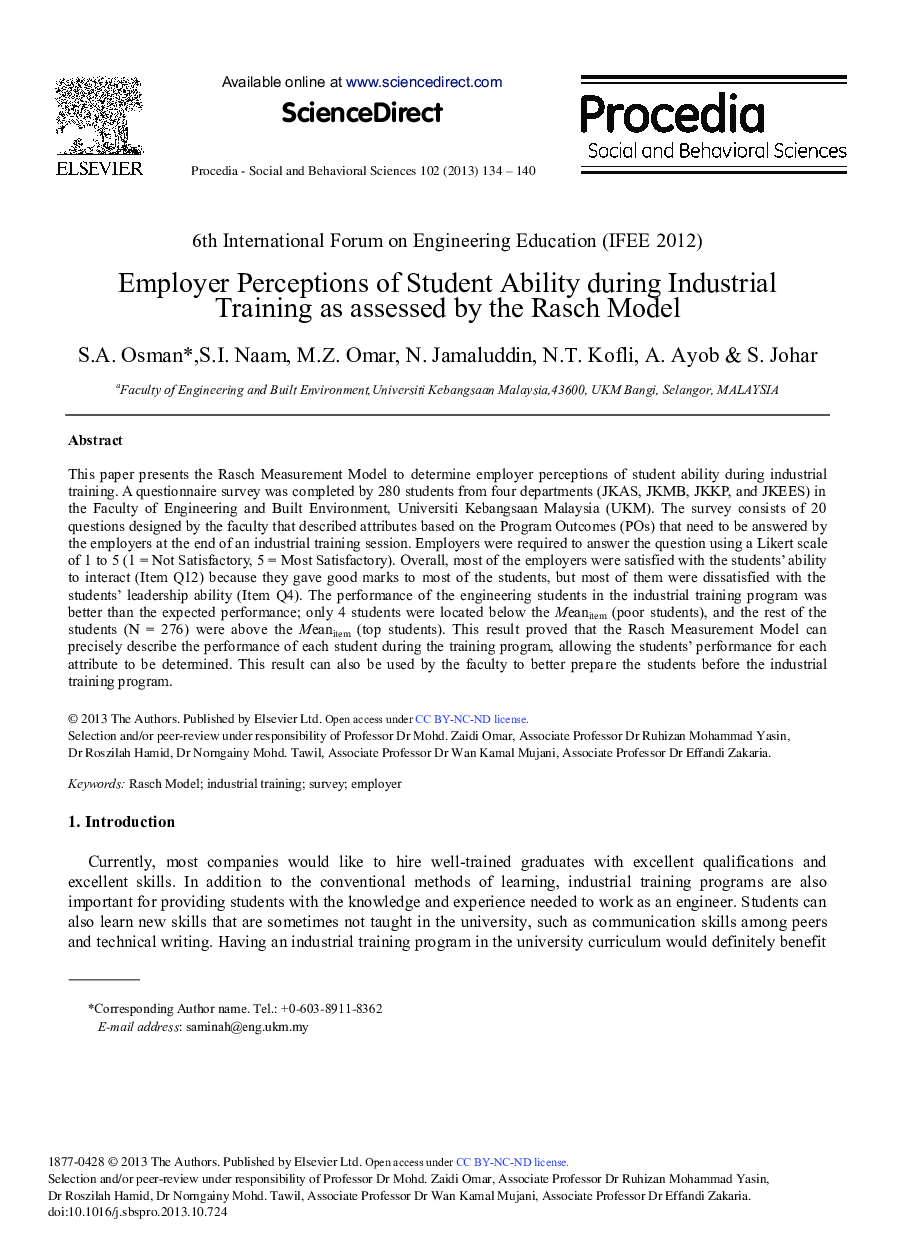| Article ID | Journal | Published Year | Pages | File Type |
|---|---|---|---|---|
| 1114968 | Procedia - Social and Behavioral Sciences | 2013 | 7 Pages |
This paper presents the Rasch Measurement Model to determine employer perceptions of student ability during industrial training. A questionnaire survey was completed by 280 students from four departments (JKAS, JKMB, JKKP, and JKEES) in the Faculty of Engineering and Built Environment, Universiti Kebangsaan Malaysia (UKM). The survey consists of 20 questions designed by the faculty that described attributes based on the Program Outcomes (POs) that need to be answered by the employers at the end of an industrial training session. Employers were required to answer the question using a Likert scale of 1 to 5 (1 = Not Satisfactory, 5 = Most Satisfactory). Overall, most of the employers were satisfied with the students’ ability to interact (Item Q12) because they gave good marks to most of the students, but most of them were dissatisfied with the students’ leadership ability (Item Q4). The performance of the engineering students in the industrial training program was better than the expected performance; only 4 students were located below the Meanitem (poor students), and the rest of the students (N = 276) were above the Meanitem (top students). This result proved that the Rasch Measurement Model can precisely describe the performance of each student during the training program, allowing the students’ performance for each attribute to be determined. This result can also be used by the faculty to better prepare the students before the industrial training program.
